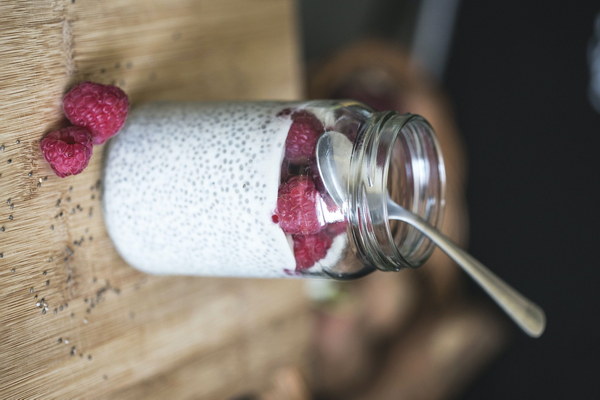Balancing Your Body Effective Strategies for Managing Excessive Sweating
Excessive sweating, also known as hyperhidrosis, can be a challenging condition to manage, affecting both physical and mental well-being. When you find yourself sweating more than usual, it's essential to understand the causes and adopt effective strategies to balance your body. In this article, we will explore various methods to help you manage excessive sweating and restore your body's equilibrium.
1. Identify the Causes
The first step in managing excessive sweating is to determine its underlying causes. While some cases may be due to medical conditions, others can be a result of lifestyle factors. Common causes include:
- Medical conditions: Hyperthyroidism, menopause, diabetes, and obesity can lead to excessive sweating.
- Lifestyle factors: Stress, anxiety, caffeine, alcohol, and spicy foods can trigger sweating.
- Clothing and environment: Tight clothing, synthetic fabrics, and high temperatures can exacerbate sweating.
2. Adopt a Healthy Diet
A balanced diet can significantly impact your body's sweating patterns. Here are some dietary adjustments to consider:
- Hydrate adequately: Drink plenty of water throughout the day to maintain your body's hydration levels.
- Avoid stimulants: Reduce your intake of caffeine and alcohol, as they can trigger sweating.
- Limit spicy foods: Spicy foods can increase your body temperature and lead to excessive sweating.
- Include potassium-rich foods: Potassium helps regulate your body's fluid balance and can reduce sweating. Foods high in potassium include bananas, oranges, and avocados.
3. Manage Stress and Anxiety
Stress and anxiety can contribute to excessive sweating. Here are some strategies to help you manage these emotions:
- Practice relaxation techniques: Meditation, deep breathing exercises, and progressive muscle relaxation can reduce stress and anxiety levels.
- Engage in physical activity: Regular exercise can help lower stress levels and improve your overall mood.
- Seek professional help: If stress or anxiety are severe, consider seeking the guidance of a mental health professional.

4. Use Antiperspirants and Deodorants
Antiperspirants and deodorants can help control excessive sweating. Here are some tips for selecting the right product:
- Choose an antiperspirant with a high aluminum chloride content: This ingredient is effective in reducing sweat production.
- Apply the product at night: Applying antiperspirant before bedtime can provide all-night protection.
- Opt for a formula with additional ingredients: Some antiperspirants contain moisturizers or natural ingredients to minimize irritation.
5. Wear Breathable Clothing
Choose breathable fabrics such as cotton, linen, and silk to help keep your body cool and minimize sweating. Avoid tight clothing and synthetic materials that trap heat and moisture.
6. Consider Medical Treatments
If lifestyle changes and home remedies don't provide relief, you may consider medical treatments. Some options include:
- Iontophoresis: A non-invasive treatment that uses electrical currents to reduce sweating.
- Botox injections: Botox can temporarily block the nerves that stimulate sweat glands.
- Surgery: In some cases, surgery may be an option to remove or alter sweat glands.
In conclusion, managing excessive sweating involves a combination of lifestyle changes, dietary adjustments, and potentially medical treatments. By identifying the causes and adopting effective strategies, you can restore your body's balance and improve your overall well-being. Remember to consult with a healthcare professional before starting any new treatment to ensure it is appropriate for your specific situation.









